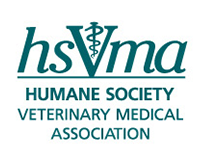| Advocacy |
Getting to Know the Congressional Animal Protection Caucus
By Barbara Hodges, DVM, MBA, HSVMA Director, Advocacy and Outreach
The Congressional Animal Protection Caucus (CAPC) is a bipartisan organization designed to raise awareness in Congress about animal welfare. It was founded in February 2009 as a successor to the Friends of Animals Caucus, first established by former Representatives Tom Lantos (D-CA) and Chris Shays (R-CT). It is currently chaired by Reps. Earl Blumenauer (D-OR) and Vern Buchanan (R-FL). The caucus now has 160 members, having nearly doubled in size from 84 members in 2013. The group also includes one of the veterinarians in Congress, Rep. Kurt Schrader (D-OR), who is also co-founder and Co-Chair of the Veterinary Medicine Caucus. By its own description, CAPC is involved in a number of activities: “The purpose of CAPC is to highlight important issues affecting animals and to educate Members and their staff on the need for sensible animal protection legislation. Partnering with reputable animal welfare organizations, CAPC sponsors non-partisan briefings and tracks the progress of relevant legislation, providing Caucus members with dependable information on animal welfare issues. The goal of CAPC is to build broad coalitions in support of common-sense, humane animal welfare laws.” 1 In the current 116th Congress (2019-2020), the Caucus has supported many animal-related bills, including ones that would: prohibit domestic horse slaughter and ban the cross-border transport of horses to non-US slaughter facilities; strengthen prohibitions on abusive equine ‘soring’ practices; end the domestic possession and sale of, and trade in, shark fins; establish penalties for extreme acts of animal cruelty known as ‘crushing;’ strengthen enforcement against wildlife trafficking while increasing informant incentives. HSVMA’s affiliate, the Humane Society Legislative Fund (HSLF), has worked hand-in-hand with the Caucus since its inception. Mimi Brody, HSLF’s director of federal affairs said, “We co-host congressional briefings on key bills with the Animal Welfare Institute and ASPCA in cooperation with the Caucus. Most recently, we held a virtual briefing in June 2020 on the PREPARED Act (H.R. 1042), which requires facilities regulated by the Animal Welfare Act – including puppy mills and roadside zoos – to have contingency plans for the animals in their care during emergency situations such as natural disasters, pandemics, power outages, and animal escapes. The Caucus helps flag and mobilize congressional support for important legislation and sign-on letters on a wide range of priority matters.” Check the list of current CAPC members and if your own Representative is not yet a member, you can easily encourage them to join CAPC by filling out this form. References: 1https://blumenauer.house.gov/congressional-animal-protection-caucus |

 The word caucus broadly designates a group of people with shared concerns. And there are numerous legislative caucuses in the U.S. Congress, within which groups of members organize around political parties, geographic regions, industries, policy issues, or other common interests.
The word caucus broadly designates a group of people with shared concerns. And there are numerous legislative caucuses in the U.S. Congress, within which groups of members organize around political parties, geographic regions, industries, policy issues, or other common interests.